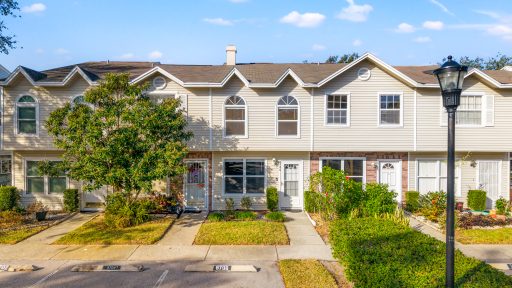Confused by most of the forbearance relief for homeowners? Experts consider that fertile turf for scammers who are going to offer help simply to steal your money.
As a result of widespread uncertainty and absence of clear guidance about mortgage relief options, home loan borrowers must be on guard against scams and profiteering if they make a decision to skip payments as a result of COVID-19-related financial hardship.

Watch out for Mortgage Relief Scams
Misinformation is rampant, and even mortgage industry experts and consumer watchdogs admit that they are unsure about possible consequences for borrowers who are looking for help promised by the government.
Thanks to federal coronavirus relief measures, consumers with federally backed mortgage loans have access to unprecedented relief. They can skip up to 12 months of payments by securing what’s referred to as a forbearance. Afterward, they can opt to repay the missed payments on top of a year’s worth of upcoming payments, shift the missed payments to the end of their loan or lengthen the loan and reduce their payment.
That relief is guaranteed in federal law, and by guidance issued to mortgage loan servicers by federal guarantors like Fannie Mae, Freddie Mac, the Federal Housing Administration, the U.S. Department of Agriculture and the Veterans Administration.
Yet consumers have flooded social media pages with reports of being told they are able to skip payments for only 90 days and must repay all skipped payments in a lump sum on the fourth month. Some say they’re concerned about signing up for the relief, cognizant of how victims of the 2008 housing crash were exploited when they sought promised modifications and refinancing.
Mortgage loan servicers have been singled out over the past week by the Federal Housing Finance Agency, which oversees Fannie Mae and Freddie Mac, and by the Office of Inspector General that oversees the FHA for providing misleading and incomplete details about the relief measures.
In a review of information on websites of 30 top FHA loan servicers, investigators found numerous examples of “incomplete, inconsistent, dated and unclear guidance” to borrowers. One of the servicers’ sites “did not mention forbearance as an option, and instead listed a variety of other options – such as refinancing or a short sale – as available options at this time,” the inspector general’s report stated.
Confusion doesn’t end with verification of consumers’ forbearance and repayment options, however.
Mortgage lending experts are torn over whether consumers who select loan modifications are protected against being charged fees or higher interest rates when the time comes to work out repayment options. What’s also unsettled is whether one of those modifications will show up as a stain on their credit report.
An official at one of the nation’s largest banks, for example, said that any post-forbearance loan modifications that will be offered to borrowers of government-backed loans will require extensive paperwork, including income and tax documentation. The official, who asked not to be identified, said mortgage loan specialists at his company said that because those modifications must be reported to credit bureaus, they could potentially reduce borrowers’ credit scores and be seen as red flags by future potential lenders.
However, Sara Sanghas, a lending administrator for the Mortgage Bankers Association, an industry trade group, said she believes that language in federal coronavirus relief legislation enacted in late March – which bars negative credit reporting during the forbearance period – also protects borrowers who get loan modifications as long as they fulfill terms of those plans.
Diane Thompson, an attorney at the National Consumer Law Center, said that borrowers whose modifications are completed within 120 days after the end of the current of national emergency, whenever that is, will be reported to the credit bureaus as current. “There could be negative reporting about the modification if it happens after the covered period,” she said.
Options and consequences
Direct questions to Fannie Mae itself about whether loan modifications could result in higher interest rates and negative credit consequences for borrowers yielded homework assignments rather than clear answers.
Servicers are instructed to report the status of mortgage loans to the credit bureaus in accordance with the federal Fair Credit Reporting Act, including as amended by federal coronavirus relief legislation, for borrowers affected by the COVID-19 emergency, a Fannie Mae spokesperson said by email. “For details on how credit reporting impacts credit scores, we recommend reaching out directly to credit score developers (e.g., FICO, Vantage, etc.)”
As for interest rates, the spokesperson responded: “The interest rate is determined by the type and terms of the modification. The servicer must work with the borrower to determine which post-forbearance loan workout option is most appropriate, depending on the borrower’s unique circumstances and financial condition.” Specific directions regarding interest rates can be found in guidance documents provided to loan servicers, the spokeswoman said.
Those guidance documents outline three disaster loan modifications designed to enable Fannie Mae and Freddie Mac borrowers to keep their homes if they can’t make lump-sum repayments or even repay the missed months over 12 months atop their regular payments.
The Extend Mod, expected to be the most common modification, shifts the unpaid months to the end of the loan, while also dividing unpaid escrow – including taxes, insurance, association fees – and adding it to the monthly loan payment for 60 months.
If the loan being modified has a fixed (non-adjustable) interest rate, the letter requires servicers to set the modified loan at the same rate.
If the loan being modified has an adjustable or step-rate that has not reached its final rate, the letter requires servicers to set the modified loan at a fixed rate equal to the lesser of Fannie Mae’s target interest rate for modifications, the final interest rate for the borrower’s step-rate modification, or the lifetime interest rate cap for the adjustable rate.
Another repayment option for Fannie and Freddie borrowers, called Cap and Extend Modification for Disaster Relief, adds all past due amounts back into the loan balance and extends the term by the number of months necessary to make the payment the same as the previous payment.
Guidance for that option requires the servicer to add the past due amounts to the loan principal and “set the interest rate to a fixed interest rate that is based on the existing mortgage loan amortization type and interest rate.”
The final disaster relief option for Fannie and Freddie borrowers, called a Streamline Flex Mod, is meant to reduce the monthly payment to make it more affordable for the borrower. That involves adding the past-due amount to the loan principal, and then resetting the term to 480 months at the existing loan’s fixed interest rate.
Those three modifications aren’t available for FHA loans, the third-most common federally backed loans. Instead, missed payments can be put at the end of the loan and paid off after the initial loan expires, when the loan is refinanced, or when the home is sold. That same option is available for USDA-backed loans.
Borrowers with VA or USDA loans can enter into what’s called “standard modifications,” in which past due amounts are added back into loan balances and the term is extended to 360 months.
Only in “some circumstances” will loan modifications result in increased interest rates, Thompson said.
Servicers, who collect money from borrowers, generally don’t make money off interest rate changes. Interest is earned by the loan owner, such as Fannie and Freddie, and the investors who profit from the purchase of bonds tied to the loans, Thompson said. “Servicers generally get paid a fixed percentage based on the outstanding principal balance, so in that way a forbearance can be helpful to their long-term balance sheets.”
Don’t be misled
Whether servicers will adhere to restrictions and guidelines intended to protect borrowers who seek help during the disaster remains to be seen. Judging by the number of misleading and inaccurate interpretations of forbearance and repayment requirements uncovered by the FHA’s inspector general, borrowers will have to educate themselves and ask for verification in writing of all options presented to them.
That confusion also presents prime opportunities for scammers, experts are warning.
Gerald Solomon, a Boynton Beach-based attorney who specializes in foreclosure defense, says he’s heard about scammers offering to help homeowners turned down for forbearance because they couldn’t prove they were undergoing hardship. According to federal coronavirus relief measures, homeowners only need to verbally attest to a financial hardship to secure forbearance.
During the 2008 housing crash that left many borrowers owing more than their homes were worth, loan servicers discovered “a big profit stream” from default-related fees, including late fees, inspection fees and even from reselling properties in default, Thompson said.
Those abuses were on the mind of Karen Smith, a Philadelphia resident, who said by email that she didn’t trust loan servicers not to be looking for ways to make money this time as well. “I have had [a modification] before, about 10 years ago, and they basically added what I owed to my principal, thereby radically increasing the amount they would make from my mortgage over the life of the loan.”
But Thompson says, “Those incentives are reduced here because the federal regulators all prohibit charging a modification fee on their mortgages” and the federal coronavirus relief legislation “provides that no fees can accrue during the forbearance.”
Lisa Epstein, who investigated foreclosure fraud after the 2008 crash and now writes for a website called The Capitol Forum, recently chronicled examples of loan servicers providing misleading information about forbearance and repayment options and suggested some might be purposely scaring people away from seeking forbearance.
That would set up situations in which homeowners who find themselves with no income and depleted savings will be forced into foreclosure, she wrote.
David Dayen, executive editor of The American Prospect, a progressive public policy magazine and website, noted in a recent column that loan servicers get paid much more money when borrowers go into foreclosure. “So they try to trigger it, steering borrowers away from better options to trap them.”
Epstein predicted in an email that the mortgage industry “is going to pull out their old tricks, including labeling borrowers seeking assistance as having ‘moral hazard.’”
The key to preventing abuses, she said, is homeowners “objecting and refusing to stand or this uncertainty and being brushed off or misled.”
She suggests calling their congressional representatives, state attorneys general, Fannie Mae, Freddie Mac, FHA, VA, USDA. In addition, the Consumer Financial Protection Bureau has a “Find a Counselor” tool at its website consumerfinance.gov to find counseling agencies in various metro areas.
She added, “This has to be nipped in the bud right away.”
A Few of Our Recent Sales
23327 Gracewood CIR Land O Lakes FL 34639

34720 Appaloosa TRL Zephryhills FL 33541

18855 Hampstead Heath CT Land O Lakes FL 34638

22700 Southshore DR Land O Lakes FL 34639

12780 Coronado DR Spring Hill FL 34609

8706 Cobbler Place Tampa FL 33615

Ready to find out the current market value of your home?
Have a questions or concern? Nick, Cindy & Nicholas Davis with RE/MAX Premier Group are here to assist you with all your Real Estate Needs. We are always available at 813-300-7116 to answer your questions or you can simply click here and we will be in touch with you shortly.



